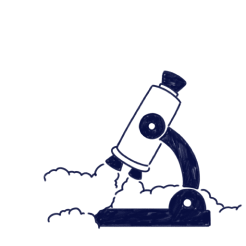The world of medical devices is steeped in regulations - you can't say medical devices without saying compliance. In this world of medical device regulations, compliance is critical. It ensures the safety and efficacy of products entering the market ...
What is EU GMP Annex 11? EU GMP rules, also known as the ‘EudraLex rules’ govern the medicinal products in the European Union. The EU GMP rules are split into three different parts plus about 20 annexes. ‘The EU GMP Annex 11’ is one of the supplement...
According to the U.S. Food and Drug Administration (FDA), data integrity is the completeness, consistency, and accuracy of data. The agency places a significant emphasis on data integrity in regulated industries such as pharmaceuticals, biotechnology...
An eQMS is a digitalized Quality Management System where you can create, store, retrieve, and archive all of your company’s quality-related documents. In the context of a life sciences company, an eQMS also automates compliance requirements under 21 ...
If you’ve been on the lookout for a go-to resource offering valuable tips for technical writing, your search is finally over. We’re here to simplify complexity.
Quality can help organizations drive compliance and growth, as well as reduce costs, by shifting from being an operational compliance issue to a strategic business initiative.
Life science industries have their language and it consists of many concepts, terms, and abbreviations that are commonly mixed up. When you see them together it is even harder to grasp the nuances between concepts. Today we’ll give you a long list of...
Root Cause Analysis (RCA) is a systematic process used to identify the underlying cause or causes that lead to a problem or incident, with the goal of preventing its recurrence in the future. It is a systematic approach employed in various industries...
We all know that in the European Union, life science companies that export to the United States must comply with 21 CFR Part 11. The regulation, overseen by the US Food and Drug Administration (FDA), oversees electronic records and electronic signatu...
2023 is almost over. Oh how time flies! As we are entering the last quarter of the year, there are still plenty of conferences and trade shows for you to attend. These events are a great way to stay on top of today’s rapid and sometimes overwhelming ...
Managing your documents doesn’t have to feel like a never-ending nightmare. Good documentation practices, also known as GDocP, are essential to streamlining your document workflow, enhancing employee efficiency, and ensuring compliance with regulator...
Did you know that 80% of Life Sciences companies are lagging behind in digitalizing their core business? For some, paper documentation is still piling up. For others, their new digital solutions are not yet fully utilized.
